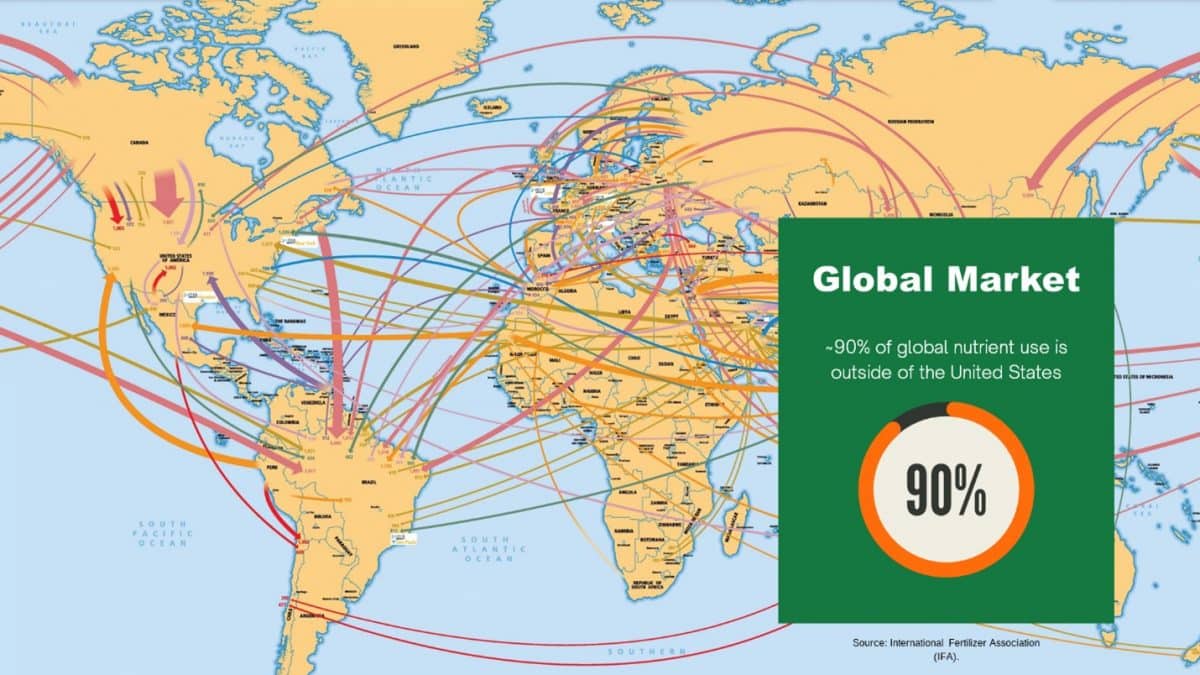TFI’s Rosenbusch Testifies to Congress on Critical Nature of Phosphate, Potash

Arlington, VA – The Fertilizer Institute (TFI) president and CEO Corey Rosenbusch today provided testimony in support of phosphate and potash, two of the three macronutrients essential to agricultural productivity, to the House Subcommittee on Energy and Mineral Resources. The hearing focused on several bills related to critical minerals including the bipartisan H.R. 8450, the Phosphate and Potash Protection Act of 2024, introduced by Representatives Cammack and Slotkin. If enacted, the legislation would direct the United States Geological Survey (USGS) to conduct an immediate review to determine the need for adding phosphate and potash to the Critical Minerals list.
“Half of all global crop yields can be attributed to fertilizer, but as the world population continues to grow it is imperative that the sustainable production and use of fertilizers continues to provide the ability of growing more food without needing more land on which to grow it,” Rosenbusch testified. “But the majority of phosphate and potash resources are concentrated in only a few countries, leaving them vulnerable to supply chain vulnerabilities and geopolitical instability. The events of the past few years have shown us that food security is national security and now is the time to protect our nation by including phosphate and potash on the USGS Critical Minerals list.”
Only 14 countries in the world produce potash, with Belarus and Russia comprising nearly 40% of global production. While the U.S. produces potash domestically, it imports roughly 95% of its needs. Regarding phosphate, 11 countries produce significant amounts with China accounting for over 40% of global production.
“Without these two minerals, modern agricultural systems would crumble and the ability to feed our growing population would be nearly impossible,” continued Rosenbusch. “It is vital that we take proactive steps to secure our own agricultural future by recognizing the role these minerals play in putting food on our tables.”
The USGS defines a critical mineral as essential to the economic or national security of the United States, susceptible to supply chain disruptions, and having significant consequences for the economy or national security if absent. “We are here today to ensure this committee understands that phosphate and potash meet all three of those criteria and should, without a doubt, be included on the USGS list of critical minerals,” Rosenbusch concluded.
###
The Fertilizer Institute (TFI) is the leading voice of the nation’s fertilizer industry. Tracing its roots back to 1883, TFI’s membership includes fertilizer producers, wholesalers, retailers and trading firms. TFI’s full-time staff, based in Washington, D.C., serves its members through legislative, educational, technical, economic information and public communication programs. Find more information about TFI online at TFI.org and follow us on Twitter at @Fertilizer_Inst. Learn more about TFI’s nutrient stewardship initiatives at nutrientstewardship.org and on Twitter at @4rnutrients.







